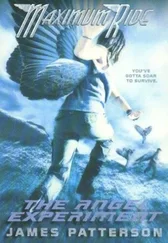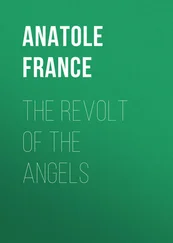Yukio Mishima - The Decay Of The Angel
Здесь есть возможность читать онлайн «Yukio Mishima - The Decay Of The Angel» весь текст электронной книги совершенно бесплатно (целиком полную версию без сокращений). В некоторых случаях можно слушать аудио, скачать через торрент в формате fb2 и присутствует краткое содержание. Год выпуска: 2010, Издательство: CCV Digital, Жанр: Старинная литература, на английском языке. Описание произведения, (предисловие) а так же отзывы посетителей доступны на портале библиотеки ЛибКат.
- Название:The Decay Of The Angel
- Автор:
- Издательство:CCV Digital
- Жанр:
- Год:2010
- ISBN:нет данных
- Рейтинг книги:5 / 5. Голосов: 1
-
Избранное:Добавить в избранное
- Отзывы:
-
Ваша оценка:
- 100
- 1
- 2
- 3
- 4
- 5
The Decay Of The Angel: краткое содержание, описание и аннотация
Предлагаем к чтению аннотацию, описание, краткое содержание или предисловие (зависит от того, что написал сам автор книги «The Decay Of The Angel»). Если вы не нашли необходимую информацию о книге — напишите в комментариях, мы постараемся отыскать её.
The Decay Of The Angel — читать онлайн бесплатно полную книгу (весь текст) целиком
Ниже представлен текст книги, разбитый по страницам. Система сохранения места последней прочитанной страницы, позволяет с удобством читать онлайн бесплатно книгу «The Decay Of The Angel», без необходимости каждый раз заново искать на чём Вы остановились. Поставьте закладку, и сможете в любой момент перейти на страницу, на которой закончили чтение.
Интервал:
Закладка:
Tōru’s hand was trembling, and his eye was on the poker beside the fire. It would have been easy to reach for it, pretending to stir the fire. He would arouse no curiosity, and then he had only to swing it. He could feel the weight of it in his hand, he could see the blood spurting over gold chair and gold doors. But he did not reach out. He was fearfully thirsty, but he did not ask for water. The anger that enflamed his cheeks seemed to him like the first passion he had known. It remained shut up within him.
28
 REMARKABLY, Tōru came to Honda with a request. He wanted to borrow Kiyoaki’s diary.
REMARKABLY, Tōru came to Honda with a request. He wanted to borrow Kiyoaki’s diary.
Honda was reluctant to lend it, but even more reluctant not to.
He let Tōru have it for two or three days. They became a week. On the morning of the twenty-eighth, when he had resolved to have it back, he was startled by an outcry from the maids. Tōru, in his bedroom, had taken poison.
It being the end of the year, the family doctor was not available. Honda had to take the risk of publicity and call an ambulance. There was a wall of onlookers when the ambulance came shrieking up. They were eager for another scandal from a house that had already provided one.
Tōru remained in a coma and there were convulsions, but his life was not in danger. He felt severe pains in the eyes, however, when he regained consciousness. Impediments developed in both eyes, and he totally lost his sight. The poison had attacked the retina, which had deteriorated beyond hope of recovery.
The poison was industrial wood alcohol, stolen under cover of the year-end confusion from a factory that belonged to a relative of one of the maids. The maid, who followed Tōru unquestioningly, wept and insisted that she had not dreamed he would drink it.
The blind Tōru said almost nothing. After the turn of the year Honda asked him about the diary.
“I burned it just before I took the poison,” he answered briefly.
His answer when asked for an explanation was much to the point.
“Because I never dream.”
Honda asked for Keiko’s help any number of times while all this was taking place. There was something strange about her. It was as if she alone knew the motive for the attempted suicide.
“He has twice the pride of most boys. I should imagine he did it to prove he’s a genius.”
When pressed, she admitted that she had revealed everything at her Christmas party. She said she had done it out of friendship, but Honda replied that he wished to see no more of her. He thus announced the end of a beautiful friendship that had lasted more than twenty years.
The declaration of incompetence was revoked, and now it was the blind Tōru who needed a guardian. Honda drew up a notarized will and named the most reliable guardian he could think of.
Tōru dropped out of the university, remained shut up in the house, and spoke to no one except Kinué. The maids were dismissed, and Honda hired a woman who had had experience as a nurse. Tōru spent most of the day in Kinué’s cottage. All through the day Kinué’s soft voice could be heard through the doors. Tōru did not seem to weary of making reply.
His birthday passed on the twentieth of March. He showed no sign of dying. He learned to read Braille. When by himself he listened to records. He could recognize birds by their songs. One day, after a very long silence, he spoke to Honda. He asked that Honda let him marry Kinué. Though aware that her insanity was hereditary, Honda gave his permission immediately.
Decay advanced, the signs of the end appeared quietly. Like hairs tickling his neck when he came back from the barber shop, death, forgotten most of the time, would come tickling when remembered. It seemed strange to Honda that, though all of the preparations for receiving it had been made, death did not come.
Honda had been aware during the excitement of a certain heaviness in the region of his stomach, but he did not, as the old Honda might have been expected to, rush off to a doctor. He diagnosed the trouble as indigestion. He continued to have little appetite after the New Year came. It was not like him to pass it off as only a result of the troubles, nor was it like him to take emaciation as a result of mental anguish.
But it had come to seem that there was no distinguishing between pain of the spirit and pain of the flesh. What was the difference between humiliation and a swollen prostate? Between the pangs of sorrow and pneumonia? Senility was a proper ailment of both the spirit and the flesh, and the fact that senility was an incurable disease meant that existence was an incurable disease. It was a disease unrelated to existentialist theories, the flesh itself being the disease, latent death.
If the cause of decay was illness, then the fundamental cause of that, the flesh, was illness too. The essence of the flesh was decay. It had its spot in time to give evidence of destruction and decay.
Why did people first become aware of that fact only as old age came on? Why, when it buzzed faintly past the ear in the brief noontide of the flesh, did they note it only to forget it? Why did the healthy young athlete, in the shower after his exertions, watching the drops of water hit his shining flesh like hail, not see that the high tide of life itself was the cruelest of ills, a dark, amber-colored lump?
For Honda now, life was senescence, senescence was life. It was wrong that these two synonyms should forever be libeling each other. Only now, eighty-one years after he fell into this world, did Honda know the perverse essential at the heart of every pleasure.
Appearing now on this side and now on the other of human will, it sent up an opaque mist, the defense of the will against the cruel and terrible proposition that life and senescence are synonymous. History knew the truth. History was the most inhuman product of humanity. It scooped up the whole of human will and, like the goddess Kali in Calcutta, dripped blood from its mouth as it bit and crunched.
We are fodder to stuff some craw. In his shallow way, Imanishi, who died in the fire, had been aware of it. For the gods, for destiny, for history, the only human endeavor imitating the two, it was wise to leave man unaware of the fact until he had grown old.
What fodder Honda had been! What unnutritious, tasteless, dusty fodder! Instinctively refusing to become palatable, he now at the end of it all wanted to stab the mouth of his devourer with the tasteless bones of his awareness; but he was certain to fail.
Tōru went blind in an attempt at suicide. His twenty-first birthday came and went. Honda had no further wish to look into possible traces left behind by the person, unknown, dead at twenty, who was the true reincarnation. If there had been such a person, very well. Honda no longer had the energy to look into that person’s life, nor would it have become him to make the effort. The movements of the heavenly bodies had left him aside. By a small miscalculation, they had led Honda and the reincarnation of Ying Chan into separate parts of the universe. Three reincarnations had occupied Honda’s life and, after drawing their paths of light across it (that too had been a most improbable accident), gone off in another burst of light to an unknown corner of the heavens. Perhaps somewhere, some time, Honda would meet the hundredth, the ten thousandth, the hundred millionth reincarnation.
There was no hurry.
Why hurry? He did not know even where his own rut was taking him. So concluded Honda, a man who had not been in a hurry to die. What he had seen at Benares was human indestructibility as the fundamental essence of the universe. The other world did not lie quivering beyond time, nor did it lie shining beyond space. If to die meant to return to the four elements, to dissolve into the corporate entity, then there was no law holding that the place of birth and rebirth need be no other than here. It was an accident, an utterly senseless accident, that Kiyoaki and Isao and Ying Chan had all appeared beside Honda. If an element in Honda was of exactly the same quality as an element at the other end of the universe, there was no exchange procedure, once individuality had been lost, whereby they could purposely come together through space and time. The particle here and the particle there have precisely the same significance. There was nothing to keep the Honda of the next world from being at the farther side of the universe. When, after the string has been cut and the beads scattered on the table, they are strung in another order, the one indestructible rule, provided no beads have fallen under the table, is that their number must be as before.
Читать дальшеИнтервал:
Закладка:
Похожие книги на «The Decay Of The Angel»
Представляем Вашему вниманию похожие книги на «The Decay Of The Angel» списком для выбора. Мы отобрали схожую по названию и смыслу литературу в надежде предоставить читателям больше вариантов отыскать новые, интересные, ещё непрочитанные произведения.
Обсуждение, отзывы о книге «The Decay Of The Angel» и просто собственные мнения читателей. Оставьте ваши комментарии, напишите, что Вы думаете о произведении, его смысле или главных героях. Укажите что конкретно понравилось, а что нет, и почему Вы так считаете.











